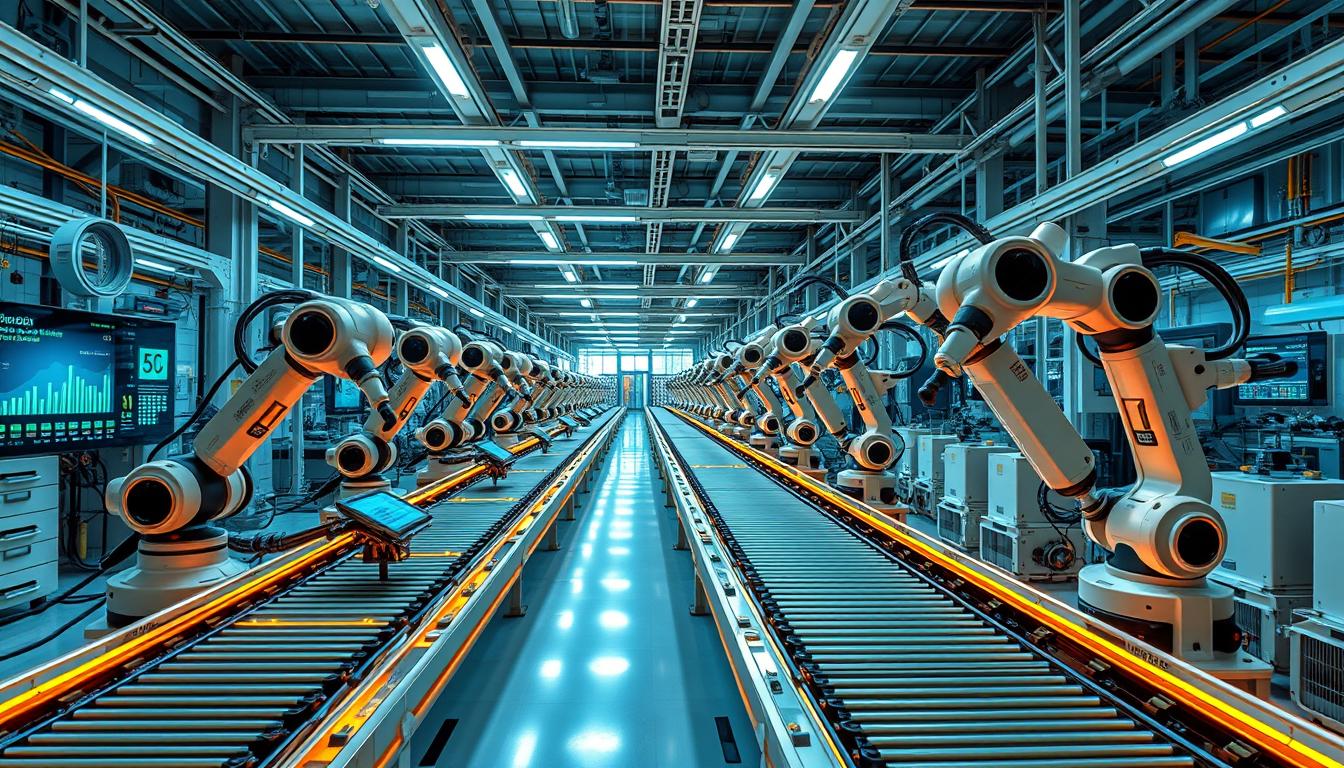In today’s world, businesses must boost their efficiency. One key way is through automation, powered by cutting-edge tech. This involves adopting new automation strategies to make things run smoother. Companies reduce errors and increase productivity this way.
Technologies like Artificial Intelligence (AI), the Internet of Things (IoT), and Robotic Process Automation (RPA) are getting popular. They mark a trend towards better automation efficiency. Organizations using these technologies not only improve their processes. They also get ahead in the competitive business world.
Understanding the Role of New Technologies in Automation
New technologies are changing how things work in different industries. They bring improvements like artificial intelligence, machine learning, and the Internet of Things. These advances make automation smarter.
Artificial Intelligence and Machine Learning
Artificial intelligence makes machines smarter. They can look at data and learn on their own. This helps them make decisions and predict things better. Machine learning helps automate tasks that are done over and over. This way, companies can do more work faster. Gartner says using AI boosts how happy customers are. This is because things get done quicker and better.
The Internet of Things (IoT) Impact
The Internet of Things makes machines talk to each other in real-time. It helps businesses understand things better and work more efficiently. Studies from Cisco and IBM show IoT helps use resources better and streamline work. With IoT, companies can adapt quickly to new situations, making their automation even smarter.
Boosting Efficiency in Automation with New Technologies
Companies eye better productivity and lower costs today. Robotic Process Automation (RPA) and cloud computing are key. They help streamline processes, make decisions based on data, and boost efficiency with clever automation.
Robotic Process Automation (RPA)
Robotic Process Automation changes how we do business. It uses software to do boring tasks quickly. Thanks to RPA, companies can cut operational costs and work more accurately, Forrester’s research shows. They see up to 30% savings. RPA reduces mistakes and speeds up work. This lets companies focus on more important tasks, encouraging growth and new ideas.
Cloud Computing and Data Analytics
Cloud automation is crucial for better data analysis. With cloud technology, businesses can sort through big data easily. They find key insights faster. Firms like Microsoft say cloud computing boosts efficiency. It offers scalable options for on-the-spot data review and easier access. This way, companies make smarter choices quickly, stay ahead of market shifts, and tweak strategies well.

| Technology | Key Benefit | Impact on Efficiency |
|---|---|---|
| Robotic Process Automation (RPA) | Reduces operational costs | Up to 30% savings |
| Cloud Computing | Scalable data analytics | Real-time insights |
| Data Analytics | Data-driven decision making | Improved strategy adaptability |
Best Practices for Implementing New Automation Technologies
Implementing new automation technologies the right way is key. Organizations should start with clear goals that match their business aims. This makes sure the strategy for using automation is sharp and can be measured. Also, getting the support of stakeholders is critical. It creates a positive setting and encourages teamwork across different sections.
Doing in-depth market research is very important. It helps find the best technologies for use. This step greatly boosts how well the automation works.
Training employees continuously is crucial for success with automation. As technology changes, making sure staff can use new tools is vital. Investing in your team reduces pushback against change. It also promotes an ongoing spirit of getting better. Learning from successful companies can teach us a lot. It shows common mistakes to avoid and strategies that work well.
Keeping an eye on key performance indicators (KPIs) is essential. It lets us measure how automation affects our work’s efficiency. Checking these metrics often allows for making smart tweaks. This leads to better processes. Staying focused on the best automation practices can spark constant progress. Thus, automation efforts end up bringing real improvements for the future.



